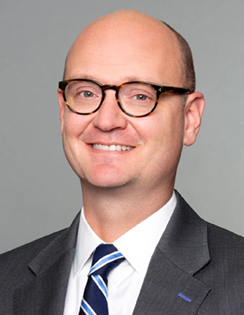In Focus: A look into adult learners with Mike Krause
October 02, 2024

Mike Krause, from the John M Belk Endowment, has over 15 years’ experience increasing educational attainment of adults, including serving as the founding director of Tennessee Promise and Tennessee Reconnect. A proud adult learner himself, Krause began his higher education journey after serving in the U.S. Army. Krause will be leading one of the sessions featured at CPE’s Adult Learner Convening.
In recent years, Kentucky has been experiencing a decline in college-going rates. What do you believe is causing this culture shift regarding higher education, especially among adults?
First off, what Kentucky is experiencing is happening everywhere right now; it’s far from an isolated issue. This is the result of a confluence of factors: waning public confidence in higher education, a loss of college-going momentum in post pandemic world, a disastrous FAFSA roll out by the federal government, and something that isn’t about mindset at all: birth rates.
From my perspective, the chief mindset challenge faced by higher ed is driven by public perceptions around costs and return on investment, both of which unfold against the backdrop of a shockingly resilient job market. The net effect, especially for adult learners, is a strong hesitation to return to campuses unless there is a striking increase in earnings because of earning a credential.
As the adult student population evolves from Gen X to Millennials, do you foresee a difference in recruiting and retaining this generation of students?
I think it’s important to highlight that the adult learners coming to campuses aren’t necessarily the traditional stereotypical dislocated employee in their mid-40s seeking to upskill. The reality is we need to begin moving away from age-range for defining adult learners and instead, focus on whether they are FAFSA independent.
These adult learners, many of whom are squarely in the Millennial category, are more technologically fluent and as a result, there is the opportunity to use many of these same modalities we are using with traditional students, just with different messaging.
It’s also worth noting that many of these millennials are parents themselves, and addressing the omnipresent concern of childcare goes a long way to make campuses a more welcoming place.
You've worked in two states that have both big metropolitan and vast rural areas. According to your research and experience working with adults, is there a divide in priorities (and challenges) among urban and rural adults when it comes to getting them into college?
This is an area where, as we see increasing division between rural and urban mindsets in America, there are great similarities. Adults considering a return to college are concerned, first and foremost, with balancing their commitments, a challenge that both urban and rural adults face in equal measure. They also face a similar set of challenges clustered around cost and supportive services. But it’s also fair to say that rural and urban adults face different flavors of these hurdles. Where we find ourselves broadly seeing challenges with transportation, assisting an adult obviously takes a different form in a densely populated city than it does in a rural area. There really are a few broad solutions out there that can have enormous impact, but the diverse nature of adult learners means that the nuances matter.
What is the key message adult populations need to hear - and believe - to get them into college?
Paradoxically, the way to help more adult learners enroll in college may not involve talking about college at all, but rather the job outcomes available after graduation. It’s a different approach than that higher education has employed over the last several decades, but it is completely necessary if we are to serve the new majority: adult learners.
To learn about the strategies Krause used enroll about one in five of their outreach pool of about 40,000 adults, register for CPE’s Adult Learner Convening.
Last Updated: 10/2/2024
